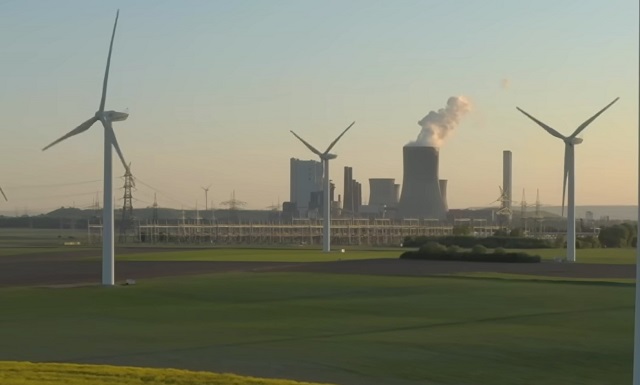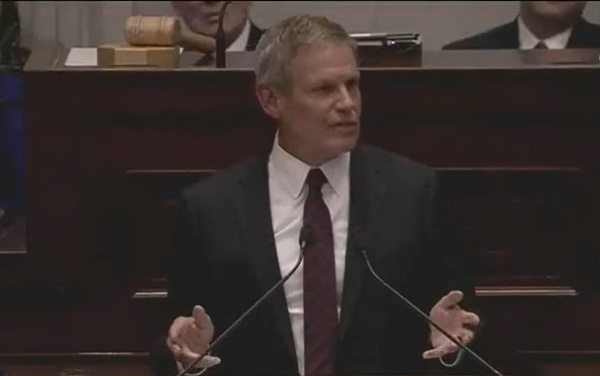Alberta
Westjet Founder Clive Beddoe to help Alberta’s economy take flight

Clive Beddoe (74), grew up in Leatherhead, England and immigrated to Canada in 1970.
As vid licenced pilot himself in 1996, Beddoe became shareholder and the first Chairman of the Board of Directors for plucky start-up WestJet airlines, He also held the President and Chief Executive Officer roles.
Beddoe is President for Hanover Group of Companies and Chair of the Board at SQI Diagnostics Inc. and is Chairman of their Human Resources Committee. and was the owner of Western Concord Manufacturing.
In 2000, Mr. Beddoe, along with WestJet’s other founders were named the Ernst & Young (EY) Entrepreneur of the Year for Canada, as well as EY’s international Entrepreneur of the Year awards in Monaco.
In 2004, he received the prestigious Canadian Business Leader Award from the University of Alberta Faculty of Business and the Business Advisory Council, in 2008 he received an Honorary Doctorate of Laws Degree from the University of Calgary, and was also recognised by the University of Victoria’s School of Business as its Distinguished Entrepreneur of the Year.
in 2009 he was entered into the Canada’s Marketing Hall of Legends by the Toronto Chapter of the American Marketing Association (AMA). That same year he received an Honorary degree from Wilfrid Laurier University.
In 2012 Beddoe was inducted into the Canadian Business Hall of fame. In 2013 he was named as a Calgary Business Hall of Fame Laureate, and in 2014 he entered the Canada’s Aviation Hall of Fame.

Beddoe as a young pilot
In 2018, he was honoured with Waterstone’ Lifetime Achievement as Most Admired Canadian CEO’s, in 2019 the travel icon was entered into the Canadian Travel Hall of Fame and in 2020 he was given BCIT’s Honorary Doctorate of Technology Recipient.

Beddoe is an avid sailor
As avid sailor and always loving a challenge, Beddoe participated in the 2006 Atlantic Rally for Cruisers, ARC’s annual race across the Atlantic Ocean.
Beddeo is married to Ruth, they have two children, Sean and Kailey and a number of grandkids. Passion is at the core of the Beddeo family, Ruth and Clive have decades of hands-on volunteering, fundraising and Philanthropy for Boys and Girls Club of Canada.

Clive Beddoe (centre), WestJet founder unveils the name of the company’s latest addition, a new Boeing 787 Dreamliner. Westjet named the plane after him. Photo Courtesy/@KPAE_Spotter
Here are the members of the council. You’ll see more of Tom’s stories about this group as the week progresses.
- Jack Mintz, chair
- Clive Beddoe – former chair, president and CEO, WestJet
- Robert Blakely
- Brent Belzberg – founder and senior managing partner, TorQuest Partners
- Bob Dhillon – founder, president and CEO, Mainstreet Equity Corporation
- Chris Fowler – president and CEO, Canadian Western Bank
- Rt. Hon. Stephen Harper – Canada’s 22nd prime minister
- Peter Kiss – owner and president, Morgan Construction and Environmental
- Zainul Mawji – president, Telus Home Solutions
- Nancy Southern – chair and CEO, ATCO Ltd.
- Kevin Uebelein – CEO, AIMCo
- Mac Van Wielingen – founder, ARC Financial
Dr. Jack M. Mintz heads up Alberta Economic Recovery Council
Alberta
Alberta government should eliminate corporate welfare to generate benefits for Albertans

From the Fraser Institute
By Spencer Gudewill and Tegan Hill
Last November, Premier Danielle Smith announced that her government will give up to $1.8 billion in subsidies to Dow Chemicals, which plans to expand a petrochemical project northeast of Edmonton. In other words, $1.8 billion in corporate welfare.
And this is just one example of corporate welfare paid for by Albertans.
According to a recent study published by the Fraser Institute, from 2007 to 2021, the latest year of available data, the Alberta government spent $31.0 billion (inflation-adjusted) on subsidies (a.k.a. corporate welfare) to select firms and businesses, purportedly to help Albertans. And this number excludes other forms of government handouts such as loan guarantees, direct investment and regulatory or tax privileges for particular firms and industries. So the total cost of corporate welfare in Alberta is likely much higher.
Why should Albertans care?
First off, there’s little evidence that corporate welfare generates widespread economic growth or jobs. In fact, evidence suggests the contrary—that subsidies result in a net loss to the economy by shifting resources to less productive sectors or locations (what economists call the “substitution effect”) and/or by keeping businesses alive that are otherwise economically unviable (i.e. “zombie companies”). This misallocation of resources leads to a less efficient, less productive and less prosperous Alberta.
And there are other costs to corporate welfare.
For example, between 2007 and 2019 (the latest year of pre-COVID data), every year on average the Alberta government spent 35 cents (out of every dollar of business income tax revenue it collected) on corporate welfare. Given that workers bear the burden of more than half of any business income tax indirectly through lower wages, if the government reduced business income taxes rather than spend money on corporate welfare, workers could benefit.
Moreover, Premier Smith failed in last month’s provincial budget to provide promised personal income tax relief and create a lower tax bracket for incomes below $60,000 to provide $760 in annual savings for Albertans (on average). But in 2019, after adjusting for inflation, the Alberta government spent $2.4 billion on corporate welfare—equivalent to $1,034 per tax filer. Clearly, instead of subsidizing select businesses, the Smith government could have kept its promise to lower personal income taxes.
Finally, there’s the Heritage Fund, which the Alberta government created almost 50 years ago to save a share of the province’s resource wealth for the future.
In her 2024 budget, Premier Smith earmarked $2.0 billion for the Heritage Fund this fiscal year—almost the exact amount spent on corporate welfare each year (on average) between 2007 and 2019. Put another way, the Alberta government could save twice as much in the Heritage Fund in 2024/25 if it ended corporate welfare, which would help Premier Smith keep her promise to build up the Heritage Fund to between $250 billion and $400 billion by 2050.
By eliminating corporate welfare, the Smith government can create fiscal room to reduce personal and business income taxes, or save more in the Heritage Fund. Any of these options will benefit Albertans far more than wasteful billion-dollar subsidies to favoured firms.
Authors:
Alberta
Official statement from Premier Danielle Smith and Energy Minister Brian Jean on the start-up of the Trans Mountain Pipeline

-

 Economy1 day ago
Economy1 day ago‘Gambling With The Grid’: New Data Highlights Achilles’ Heel Of One Of Biden’s Favorite Green Power Sources
-

 Energy1 day ago
Energy1 day agoMarket Realities Are Throwing Wrench In Biden’s Green Energy Dreams
-

 illegal immigration1 day ago
illegal immigration1 day agoBiden’s DOJ Threatens To Sue Another State For Enforcing Immigration Law
-

 ESG1 day ago
ESG1 day agoTennessee Taking Lead In Protecting Civil Rights And Free Enterprise—And Stopping Political Debanking
-

 International2 days ago
International2 days agoTrump campaign says he will pardon Jan. 6 prisoners on ‘case-by-case basis’ if re-elected
-

 Brownstone Institute7 hours ago
Brownstone Institute7 hours agoBook Burning Goes Digital
-

 conflict2 days ago
conflict2 days agoNYPD says protesters had weapons, gas masks and ‘Death to America!’ pamphlets
-

 illegal immigration1 day ago
illegal immigration1 day agoMore Chinese Illegal Migrants Apprehended At Southern Border In Two Days Than In All Of 2021: REPORT






